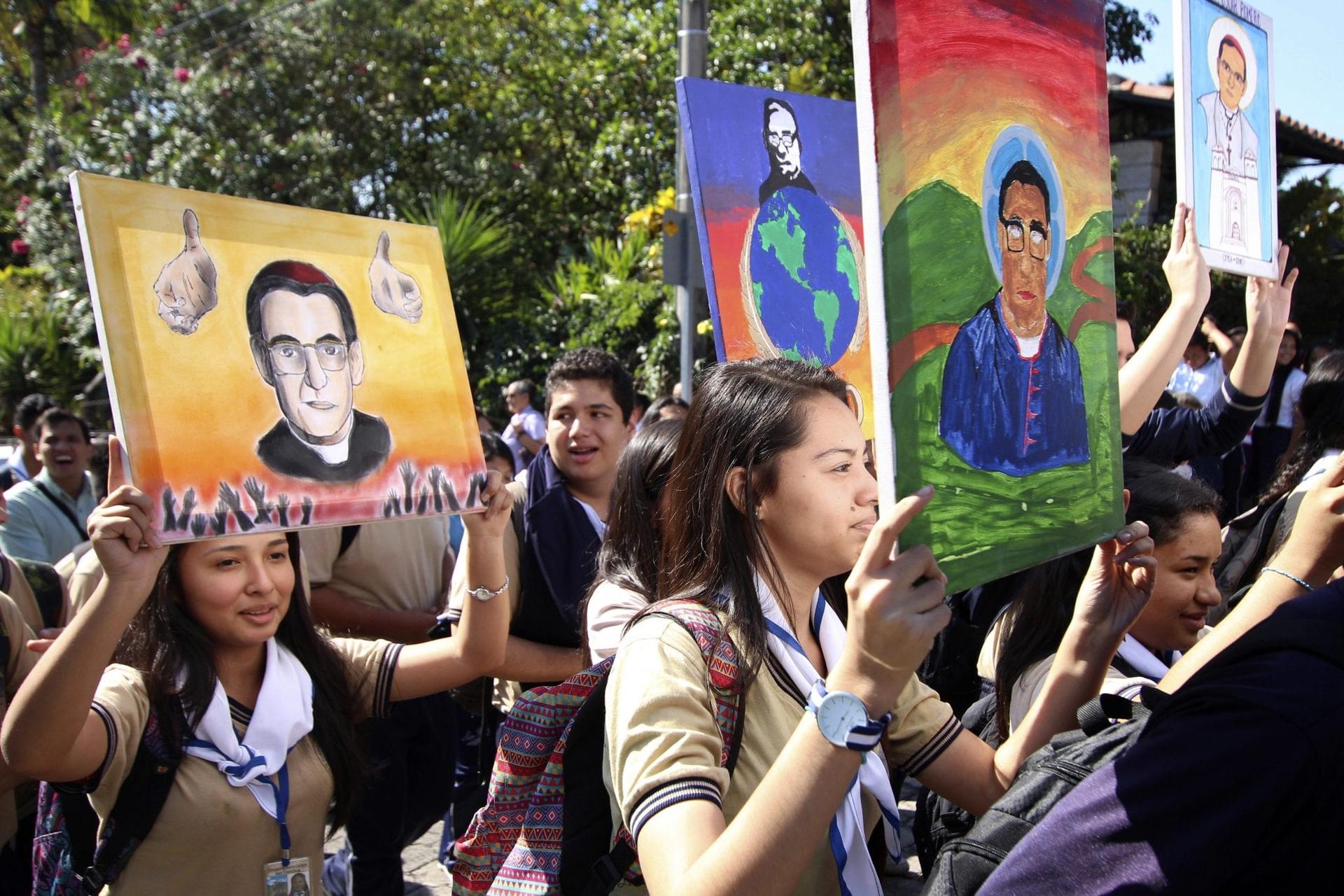ROME – Holy Week this year begins with observances all across Europe, including Italy, France and Germany, designed to preserve the witness of contemporary Christian martyrs and to express solidarity with suffering Christians in the Middle East.
In Italy, March 24 marks a “Day of Prayer and Fasting in Memory of the Missionary Martyrs.” The day was selected as the anniversary of the slaying of Archbishop Oscar Romero of El Salvador, who was shot through the heart by right-wing paramilitary gunmen while saying Mass in a small hospital chapel in San Salvador on March 24, 1980.
Already proclaimed “Blessed” Oscar Romero, the Salvadoran martyr soon will be canonized by Pope Francis, possibly in conjunction with his trip to Panama in 2019 to celebrate the Catholic Church’s World Youth Day.
According to organizers of the Italian remembrance, its scope is to recall all the martyrs of the past century, as well as to emphasize the supreme value of life, “which is a gift for everyone.”
“To recall the memory of the martyrs is to acquire an interior capacity to interpret history beyond its simple consequences,” they said.
Promotional materials for the observance this year contain an image of an antique baptistry in the Church of Shivta in the Negeb desert in Israel, which organizers described as a symbol of the new life acquired in baptism.
“It’s the life to which not only the martyrs are called, in their supreme witness to the greatest love (to give one’s life for those whom one loves), but also every one of us, in the daily witness of a faith lived in charity and friendship for all those who are deprived, wherever they are in the world, of life in its fullness,” they said.
In France, a common day of prayer was launched today, Palm Sunday, for Middle East Christians by the group Œuvre d’Orient, which is sponsored by the Archdiocese of Paris and which provides aid to Christians in the region.
In Lebanon, the Patriarch of the Maronite Church adopted the appeal for a common prayer, setting the date for April 9, in order to coincide with the feast of Palm Sunday on the Eastern calendar used in that church.
“Peace is the deepest desire of all, from Egypt to Iraq, through Syria,” said Monsignor Pascal Gollnisch, the director general of Œuvre d’Orient.
“Christ asks us to be peace-makers,” he said. “The Christians in the Middle East are no longer a power in political, economic or military terms. Their strength is incarnated in the Gospel, because they’re peace-makers, taking care of the poor, the sick, and children.”
If religions are “sufficiently independent and free of the political powers,” Gollnisch said, “they’re a source of peace, and prayer offered in that spirit is a true instrument of peace.”
Also on Palm Sunday, the German bishops have decided to take up a special collection for the Christians of the Middle East titled “Together, Let’s Give a Future to the Christians of the Holy Land.”
Proceeds from the collection will go to a German association for the Holy Land, as well as the Franciscan province of the Holy Land.
According to a note from the German bishops, income from the collection will pay for pastoral projects, social and charitable activities, and formation efforts on the part of the Church.
“Thus we will help the Christians of the Middle East witness to their faith in difficult circumstances,” the bishops said.
“Terror, violence, hatred and mistrust are devastating the countries of the Middle East and are driving many Christians to emigrate,” they said, but “the schools and social services of the Church in the Holy Land” help to combat this exodus.
The German bishops also called on their followers to sustain their fellow believers both economically and in the form of prayer, and not to hesitate to go on pilgrimages to the Holy Land, which, they said, “are seen by the Christians of the Middle East as an effective sign of solidarity.”















